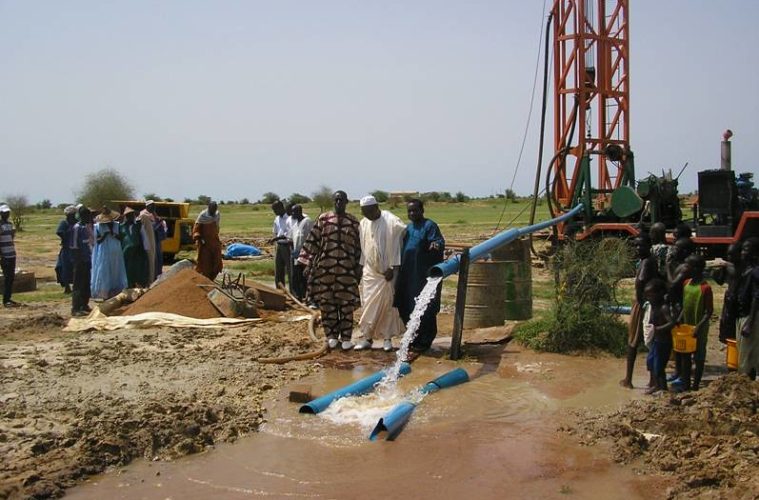Senegal (Matam county), 2012.
The gray rhino of agro-pastoral conflicts lingers at the horizon of world politics. This poses a potential disaster particularly in the tri-border of Senegal, Mali, and Mauretania. The existence of agro-pastoralist conflicts in this area presents four key challenges to international development and moreover, world security: (one) hunger and poverty from disputes over water or lack of access thereof; (two) armed disputes between local non-state actors over control of water resources; (three) state-to-state conflict in defense of water rights; and (four) the resulting migration of citizens of this border region to more stable and water-rich endroits in the developed world (e.g., the European Union).
According to the West African Network for Peacebuilding’s 2018 report for the Global Water Partnership Summit in Dakar, the consequences of water poverty and disputes along the Senegalese river valley and the tri-border region between Senegal, Mali, and Mauritania has the potential to be a flashpoint for conflict in the future, if water management and infrastructural development projects are not undertaken to reshape water scarcity in the region throughout the coming years.
This is in no way a novel phenomenon; the Senegalese River Valley was already host to a war based on water issues between Mauritania and Senegal from 1989-91. In this conflict, tensions escalated between traditional Mauritanian pastoralists and ethnically Wolof farmers in Senegal’s Northern departments, leading to state warfare between the two countries, and subsequently, internal migration in Senegal and Mauritania as well as to the EU.
This conflict arose over forty years ago and tensions over water have not been reduced since. Political instability within Mali, political isolationism in Mauritania, and shrinking grasslands in Senegal can be a spark for state-to-state conflicts throughout the next decade; the result of which will be increased migration to more stable regions (e.g., the EU) and perhaps larger instances of extremist movements in the Sahel.
The international community and attending member-states of the Munich Security Conference can respond to water instability in the tri-border region of Senegal, Mali, and Mauritania, and the possible state-to-state conflict, migration, and extremism it may incur, in the following ways: (one) recommit funds and technical expertise to the Senegal Valley Authority in order to ensure the provision of water to new agricultural centers in Senegal as well as to traditional grazing lands along the border of Mali and Mauritania; (two) establish an annual water and agricultural format in Dakar and Nouakchott to foster routine dialogue between farmers from Senegal and pastoralists from Mauritania and Mali; and (three) create a support mechanism for the monitoring of the pastoralists passages between the Senegal-Mali/Senegal-Mauritania border. The combined sum of these recommendations will allow for peaceable dialogues between two groups (agriculturalists and pastoralists) whose livelihood and existence is deeply intertwined with the condition of the Senegalese River, while also preserving both the territorial integrity of state boundaries within the tri-border region – reducing a threat similar to that between Mauritania and Senegal from reoccurring in the future.
The issue of water-related conflicts in Sub-Saharan Africa is not novel. Local experts, international development agencies, and NGOs have warned of the threat for years. However, with renewed international focus on climate following COP 26 in Glasgow, and under the continued adherence to the security-development nexus within NATO member-states, it is high-time that the international community – particularly the West – address the threat water scarcity can pose not only to African stability and development – but to EU security and migration-prevention as well.

